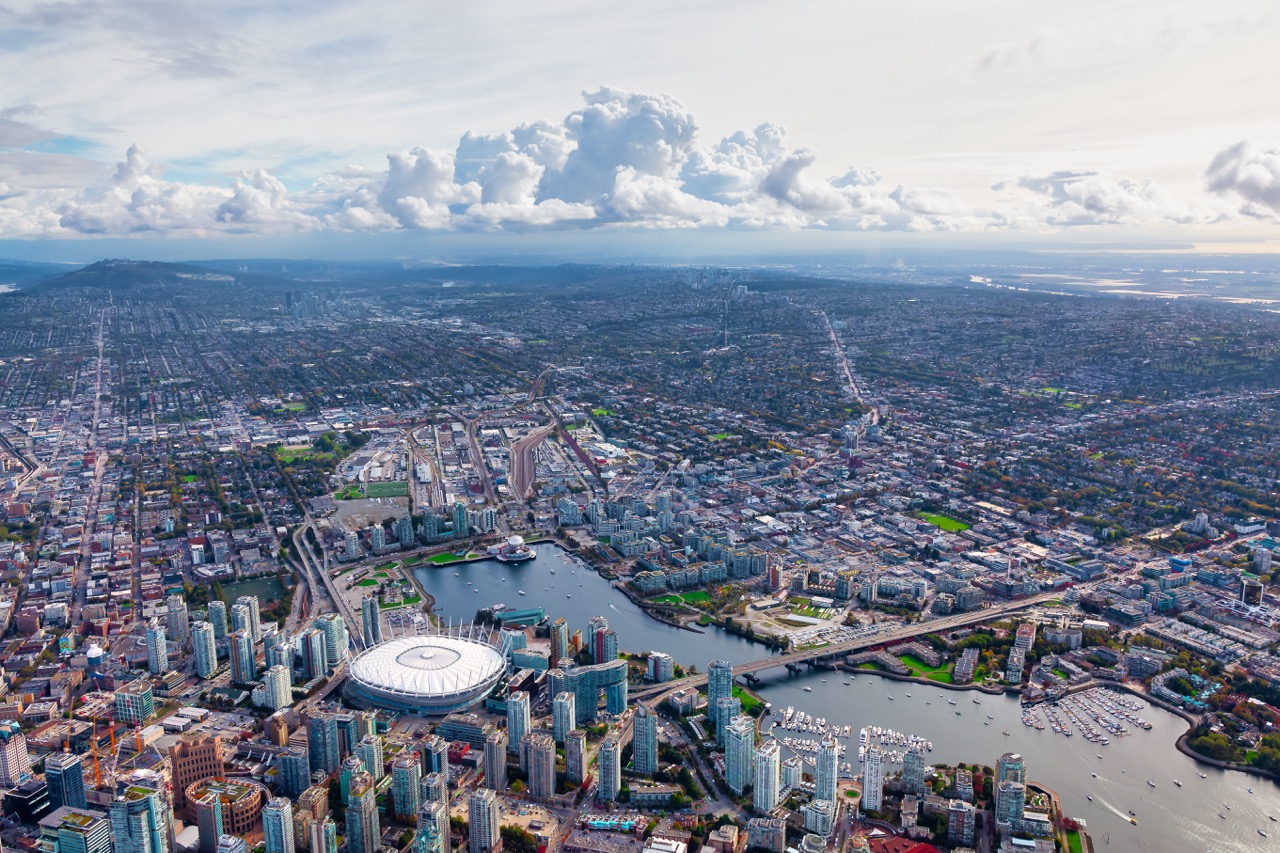The Vancouver housing market has long been a focal point of discussion for potential homeowners and renters alike. With its stunning landscapes, vibrant culture, and economic opportunities, Vancouver attracts individuals and families from all walks of life. However, the decision between renting and buying a home in this city is not straightforward. It requires careful consideration of various factors, including financial implications, market dynamics, and personal circumstances. This article aims to provide a comprehensive evaluation of the choices available to prospective residents in Vancouver as of 2023.
Understanding the Vancouver Housing Market Landscape
The Vancouver housing market has gained a reputation for being one of the most expensive in Canada, characterized by rapidly rising property prices and a competitive rental landscape. As of 2023, the benchmark price for homes in the Greater Vancouver area remains significantly high, making homeownership a daunting prospect for many. The demand for housing continues to outstrip supply, further exacerbating price increases. This scenario poses unique challenges for both renters and buyers, necessitating a thorough understanding of market trends and economic indicators.
The rental market in Vancouver is equally competitive, with vacancy rates remaining low and rental prices climbing consistently. Factors such as foreign investment, local economic conditions, and demographic shifts contribute to the dynamic landscape of both the renting and buying segments. Additionally, the recent influx of remote workers has heightened the demand for rentals in suburban areas and increased competition within the urban core. Understanding these trends is crucial for potential renters and buyers navigating the complex landscape of Vancouver real estate.
As prospective residents consider their options, it’s essential to recognize that the housing market is influenced by various external factors, such as government policies, interest rates, and economic forecasts. For example, recent initiatives aimed at increasing housing supply and curbing speculative investments may alter the market dynamics in the coming years. Therefore, staying informed about the evolving Vancouver housing market is key to making an educated decision regarding renting versus buying.
Key Factors to Consider When Renting in Vancouver
When contemplating renting in Vancouver, one of the foremost considerations is the monthly rental cost compared to income. Given the city’s high rental prices, many potential renters find themselves allocating a significant portion of their income towards housing. This financial strain may necessitate a more detailed budget analysis to ensure that essential expenses can still be met while also maintaining a comfortable lifestyle. Prospective renters should also account for additional costs, such as utilities, maintenance, and transportation, which can further impact their overall budget.
Another factor to consider is the flexibility that renting provides versus the commitment required for homeownership. For individuals or families who may not plan to stay in Vancouver long-term, renting offers the advantage of mobility and a lower barrier to entry. This flexibility can be particularly appealing in a city where housing markets can shift dramatically. Furthermore, renting often comes with fewer responsibilities related to property maintenance and repairs, allowing tenants to focus on their day-to-day lives without the added burden of home upkeep.
Lastly, renters should also evaluate the amenities and location of potential rental properties. Proximity to public transport, schools, and recreational facilities can greatly influence both lifestyle and convenience. Vancouver’s diverse neighborhoods offer a range of options, from bustling urban centers to quiet, family-oriented suburbs. Understanding one’s personal preferences and lifestyle needs is crucial when selecting a rental property in this dynamic city, as the right choice can significantly enhance the living experience.
The Financial Implications of Buying a Home in Vancouver
Buying a home in Vancouver carries significant financial implications that prospective buyers must carefully evaluate. The initial costs of purchasing a property can be substantial, encompassing not just the down payment but also closing costs, property taxes, and insurance. For many first-time homebuyers, navigating these financial hurdles can be overwhelming. It’s essential to have a clear understanding of what is financially feasible, as well as the long-term commitment that comes with a mortgage.
Additionally, securing a mortgage in Vancouver is influenced by prevailing interest rates and lending policies. Buyers should be aware that even slight fluctuations in interest rates can have a considerable impact on monthly mortgage payments and overall affordability. Furthermore, the province of British Columbia has implemented various policies aimed at cooling the housing market, such as foreign buyer taxes and speculation taxes, which can affect the financial landscape for buyers. Understanding these elements is critical to making an informed decision about homeownership.
Finally, potential buyers should also consider the long-term investment aspect of purchasing a home in Vancouver. While the market is currently high, it has historically shown resilience and potential for appreciation. Homeownership can serve as a hedge against inflation and provide equity growth over time. However, the risks associated with market fluctuations must not be overlooked, as buyers could face financial strain if property values were to decrease. As such, prospective buyers should conduct thorough market research and consult financial advisors before making any commitments.
Pros and Cons of Renting in Vancouver’s Competitive Market
Renting in Vancouver presents both advantages and disadvantages that potential renters should weigh carefully. On the pro side, renting allows for flexibility; tenants can easily relocate without the long-term commitment that comes with homeownership. This is particularly beneficial in a city known for its fluctuating job market and transient population. Additionally, renters are typically not responsible for the maintenance and repair costs associated with property ownership, which can ease financial burdens and provide peace of mind.
However, the competitive rental market in Vancouver can lead to challenges, such as high rental costs and limited availability. Many prospective renters may find themselves in bidding wars or facing the dilemma of having to compromise on their desired location or amenities. As demand continues to outstrip supply, renters may also be subject to periodic rent increases, making housing less predictable and manageable over time. The potential for these challenges necessitates a proactive approach to securing a rental that meets both budgetary and lifestyle needs.
Moreover, renters should consider the long-term implications of not building equity through homeownership. While renting provides immediate access to housing without the complexities of property maintenance, it does not contribute to long-term wealth accumulation. For individuals or families considering a longer-term stay in Vancouver, the lack of equity growth can be a significant drawback. Weighing the immediate benefits of renting against the potential long-term financial gains of homeownership is an essential aspect of making a well-informed decision.
Evaluating Long-Term Benefits of Homeownership in Vancouver
Homeownership in Vancouver offers several long-term benefits that can be appealing to prospective buyers. One of the most significant advantages is the potential for property appreciation over time. Historically, home values in Vancouver have shown a general trend of increasing, providing homeowners the opportunity to build wealth through equity. This can be particularly valuable for families looking to establish a stable environment for their children, as owning a home can offer both security and financial investment.
Additionally, homeownership allows for greater control over living arrangements and customization of living spaces. Homeowners have the freedom to renovate, make modifications, and create a space that reflects their personal style, something that is typically limited in rental properties. This autonomy can contribute to a greater sense of belonging and satisfaction within the home. Furthermore, owning a home can provide stability in housing costs, as fixed-rate mortgages protect homeowners from the rising rental prices that can affect renters.
However, it’s essential to recognize that the benefits of homeownership are accompanied by responsibilities that renters do not face. Homeowners must manage maintenance, repairs, and property taxes, all of which can impose financial and time burdens. Additionally, the risk of market fluctuations can affect the overall financial health of homeowners. Therefore, while the potential long-term benefits are significant, they must be carefully weighed against the responsibilities and risks associated with owning property in Vancouver.
Making an Informed Decision: Renting vs. Buying in 2023
As Vancouver’s housing market continues to evolve, making an informed decision between renting and buying in 2023 requires careful consideration of individual circumstances. Prospective renters and buyers must assess their financial situations, lifestyle preferences, and long-term goals. For those with a stable income and the capacity to invest, buying a home may represent a prudent financial choice. Conversely, individuals seeking flexibility or uncertain about their long-term plans may find renting to be more suitable.
Market conditions also play a critical role in the decision-making process. With high property prices and competitive rental rates, potential buyers should analyze whether the local real estate market is conducive to a purchase. Engaging with real estate professionals and conducting comprehensive research can provide valuable insights into market trends and help clarify the best course of action. Additionally, understanding the implications of government regulations and potential policy changes can further inform the decision.
Ultimately, the choice between renting and buying is not one-size-fits-all. It requires a nuanced understanding of the Vancouver market, personal financial capabilities, and future aspirations. By weighing the pros and cons of each option and considering individual needs and preferences, individuals can make a more educated decision that aligns with their unique circumstances and goals.
In conclusion, the decision between renting and buying a home in Vancouver in 2023 is complex and multifaceted. The city’s competitive housing market, characterized by high prices and fluctuating demand, presents unique challenges for both renters and buyers. By evaluating important factors such as financial implications, market dynamics, and long-term benefits, prospective residents can navigate this landscape with greater confidence. Ultimately, a thorough understanding of personal circumstances and a thoughtful assessment of available options will lead to a more informed decision, allowing individuals and families to find a living arrangement that best suits their needs in this vibrant city.





